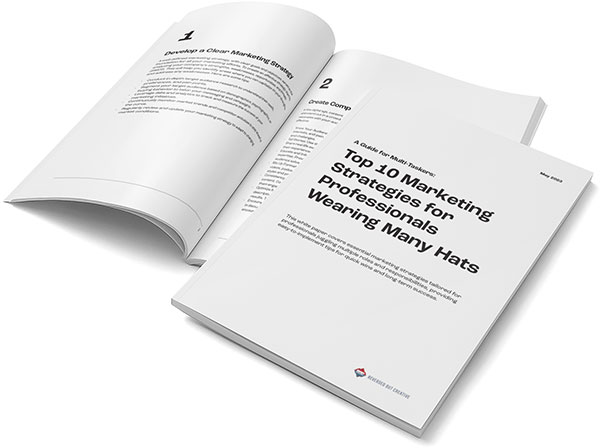
As we continue the introduction of novel customers and progress the lead generating routine for prevailing customers, the topic of keywords is always a crucial thing to consider. For a new buyer, it’s the selection of keywords that imitate their brand understanding of their primary needs. For prevailing buyers, it’s about rank to improve position against the rivalry in search results and create more competent conversions. To provide the best direction for both, we can stay well-informed of what other businesses have to offer about the way search is developing.
Working on SEO can occasionally seem monumental. Despite everything, there is so much that can be done and in diverse ways to measure accomplishment. One of the most helpful places to start is understanding branded vs non-branded search, and knowing how to examine both with Google Search Console.
What is Branding Keyword Research?
A branded keyword can be defined as the keyword that has your brand’s name contained within it, or a difference of your brand’s name in it. If any individual is on the hunt for keywords, to some extent information related to your brand would come up, that could be including your website, products, and sometimes even social media accounts of your brand.
These could be:
- Your company products
- Your company services
- Matters if your company is proficient
Keywords that comprise other brands, however, are not branded keywords, not for your business. This is a chief difference to understand if you’re a shop owner and sell products from different brands.
Why Branded Keywords Play No Role In SEO?
Firstly, most of the time your website will be in the first position for any branded keywords. So, no optimization is essential to rank it in the first position. Any organic traffic from branded keywords is not a result of search engine optimization as no one can do any better than the first position in organic results.
Secondly, branded terms are a consequence of brand recognition. Branded keyword searches are directional. The user is looking specifically for your website. It’s fundamentally the same as users typing the name of your domain name in their browser.
What are Non-Branded Keywords?
Non-branded keywords are those keywords that are associated with your products or services but do not comprise exclusively your company’s name in them. Contemplate the keywords like, “SEO service” and “graphic designing company” are both non-branded keywords. These are phrases used by individuals interested in what you are offering, but they don’t directly refer to your brand.
Your plan will have more numbers for non-branded keywords than branded ones as the keywords your consumers use to research you are practically limitless. An investigation of non-branded keywords and traffic is vital, predominantly for big brands, because branded keywords can make up the majority of organic traffic.
This is substantial because branded keywords are not a purpose of search engine optimization’s hard work. Although these keywords do refer to a specific brand, they aren’t exclusive to the company. Users who are probing those keywords are not precisely looking to buy from them or learn more about their brand – they’re looking for one specific product that may belong to different retailers. Users searching for branded keywords, on the other hand, establish clear curiosity for your company specifically and your products, as by now they are aware of the products you sell.
Accordingly, if you are concerned with defining the strong point of SEO efforts, you must look further into the analysis of data and emphasis on the organic number of non-branded keywords and their traffic. Or else, trends and fluctuations could have little to do with actual SEO.
What Makes Branded And Non-Branded Keywords Important?
There are prominent differences when it comes to branded vs. non-branded keywords, but never forget both are important for an effective SEO strategy for your business. Branded keywords are significant because they help more internet operators discover your business directly.
Now you must be wondering, then what makes non-branded keywords significant? Well, non-branded keywords have a very critical significance as they help you gain distinguishability online through organic search efforts. Sure, people may not directly put your company’s name in the form of text in certain keywords when they search on the browser, but if you have correctly optimized the keyword, your website will possibly show up on the first page nevertheless.
Branded Search vs Non-Branded Search | How Working With Both Makes The Difference
Non-branded keywords are a great influence when it comes to enticing organic traffic and refining your paid search to boost your business ROI. Yet, without branded terms, it can be difficult to control the SERP and stay ahead of competitors.
Branded inquiries structure only 10% of total searches, in which 80% of the searches are informational while another 10% are transactional. In the meantime, branded keywords have a 100% conversion rate than non-branded keywords, as they’re specifically being searched for. For this purpose, it’s correct to say that branded and non-branded keywords balance one another well by targeting potential consumers at various stages of the sales funnel.
Branded keywords so often have less competition and lower cost per click and at the same time have a high conversion rate. But on the other hand, non-branded keywords surge visibility and brand awareness to help create leads. In short, ads with non-branded keywords help you request the target audience at the top of the funnel, while branded keywords will help drive the sale through. Think of them as combined efforts to boost your sales and enhance marketing efforts to get the required results.
Given that both have their own importance, branded and non-branded keywords are both necessary for defining a fruitful online marketing approach. If you aren’t placing your branded keywords, optimize your website and its pages with your brand name. If users specifically search for your company, you must make it as simple for them to find you. Optimizing your website is very crucial for this reason.
Why Create Separate PPC Campaigns For Branded And Non-Branded Keywords?
When you want PPC ads, you should create distinct campaigns for branded and non-branded keywords. These shouldn’t be your only strategy, as it is possible to create distinct non-branded campaigns for different product types also. Both types have their benefits so you should expect distinct outcomes based on the keywords you use.
A campaign using branded keywords will naturally have a large number of imprints, cost per click and conversion rates compared to a campaign with only non-branded keywords. But if you combine them as one campaign, it can be problematic to regulate how positive that campaign is. Keeping them discrete permits you to set realistic opportunities for both of them separately.
PPC campaigns are excellent ways to influence your consumers who are searching for non-branded keywords that you rank organically. This is particularly accurate if you’re just starting your SEO campaign and haven’t yet recognized rankings for your most treasured keywords. It can typically take months to attain the rankings you want, and PPC ads can help you attract traffic for now. PPC campaigns can also be valuable for keywords with purchasing intent. Such keywords allow you to reach potential consumers searching for the products and services your company offers, even if they are new to your company.
How To Strategize Branded And Non-Branded Keywords Against Your Competitors
Always have it at top of your mind that your competitors can use your branded keyword terms in their marketing strategy. This is specifically common in exceedingly competitive markets or if you offer a very similar product or service. Your competitor aims to lure those people who are looking for your company and brand. This allows them a fair chance to convert the potential users to their brand instead.
While Google doesn’t essentially restrict your competitors from using your brand name in their PPC campaigns, here are the instructions to prevent your competitors from stealing your market share:
- Play competitor’s bidding game: You can research with this method if you have the budget and want to get some of your target audience back.
- Increase branded ad expense: It is an effective strategy, however a little expensive too. By increasing the bid, you may be able to kick them out of the game.
- Improve your quality score: Since a quality score helps command your ad rank, refining it could place your branded ads above the competition.
- Optimize your landing pages: Your competitors will not be optimizing their landing pages for your branded keywords. So your landing page optimized for branded keywords may boost your Quality Score and get your ad better visibility.
What Next?
Measuring and analyzing within Google Search Console would keep you busy. There is a lot to learn from this influential strategy. If you’re looking to upgrade your SEO and analytics game, review your measurement protocols for On-Page SEO and Local SEO, apply tracking as part of your plan, and dig into your sitemap.
If you need help with your strategy, consider contacting us at Reversed Out Creative.
Contact Us
At Reversed Out Creative, we understand the challenges and opportunities presented by AI disruption. Our team of experts specializes in web design, SEO, graphic design, and digital marketing services. Reach out to us through our contact form to learn more about navigating the evolving job market and embracing the potential of AI. Together, let’s shape a future that combines human ingenuity with the power of AI.
Next Article: SEO Tips For Startups | Learn About All The Benefits!
©2024 Reversed Out LLC. All rights reserved. Privacy Policy.


